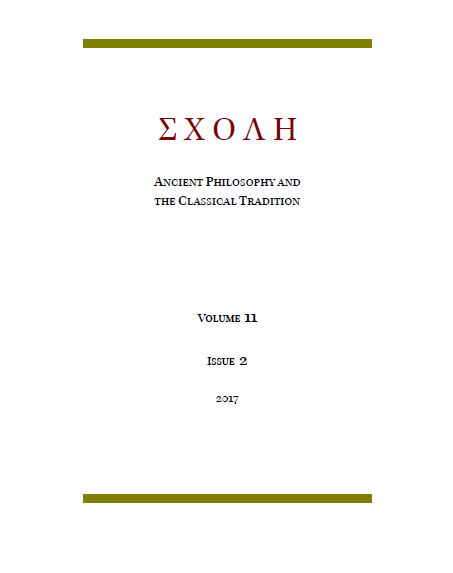СОФИСТИЧЕСКИЙ РЕЛЯТИВИЗМ: МИФ ИЛИ РЕАЛЬНОСТЬ?
SOPHISTIC RELATIVISM: FICTION OR REALITY?
Author(s): Marina VolfSubject(s): Epistemology, Ancient Philosphy, Ontology
Published by: Новосибирский государственный университет
Keywords: relativism; theory of perception; homo mensura; Plato; Aristotle; Protagoras; Gorgias;
Summary/Abstract: In traditional interpretations, ancient Sophistic is labeled as relativism. According to them, Plato and Aristotle refer Protagoras' doctrine to philosophically inconsistent perceptual relativism. Plato offers two interpretations of relativism, and one of them, so called "secret doctrine" of Protagoras, is often marked as Plato’s own theory of perceptions. Despite the fact that the exoteric and esoteric versions of Protagorean doctrine contains fully valid epistemic and ontological ideas, they are attributed philosophical failure to them because of the self-refutation thesis contained in them, and, according to Aristotle's version, its subjectivism. Subjectivism can also be attributed to Gorgias with regard to his categorial distinction of abilities and objects of perception. However, criticizing subjectivism, Aristotle himself uses a similar categorial argument. Both interpretations undermined the reliance of the Sophistic, having made relativism one of the negative markers of it. Modern rehabilitating interpretations of the Sophistic either seek ways to eliminate subjectivism and skepticism from the sophistic doctrines, or avoid using modern terminology, also they should take into account that fact that in the contemporary philosophy there is no such concept as «simply relativism », but there are various, sometimes contradictory, interpretations of it, and in this case, they have to make an adjustment to the current context in which negative interpretations of relativism have long been not popular.
Journal: ΣΧΟΛΗ. Философское антиковедение и классическая традиция
- Issue Year: XI/2017
- Issue No: 2
- Page Range: 493-504
- Page Count: 12
- Language: Russian

